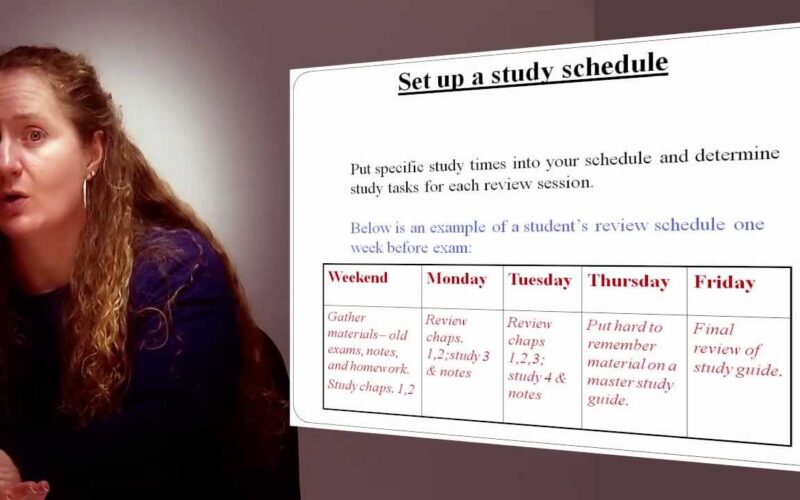Parents never seem to recognize the “A” on a test or report card as easily as they see the “D” or “F.” They will then accuse the student of not studying or goofing around. Parents are frustrated, but actually not as much as the kids who know they studied and their test scores don’t reflect it.
It is so difficult to explain to someone who has never experienced it that “test anxiety” is a real condition. A student will study and know the material inside and outside, and still blank out when they get to the test room. They have put so much pressure on themselves to do get a good grade that their mind puts up a barrier to protect itself from damage caused by the stress.
Low tests scores are not always an indication that the student is lazy. Many very intelligent and highly motivated people have performance anxiety before a big test.
My friend, Mary, once told me, “I can’t take a test! I feel so stupid. I try really hard to pay attention, take good notes, and I know everything backwards and forwards, yet as soon as I enter the testing room my mind is a complete blank!” She added, “When it doesn’t really matter whether I do well or not, I can ace it. What’s wrong with me?” Mary suffers from “test anxiety,” — a form of performance anxiety that stops the memory from recalling the information. The information is still there, but blocked.
Although a little nervousness before taking a test is normal, when you freeze up or zone out, then you have a problem!
Performance anxiety is caused by stress. It can manifest itself physically, such as with butterflies in the stomach or nausea, pounding heartbeat or headaches. Perfectionists are the ones who seem to be most at risk. They put pressure on themselves to be the best and their mind is telling them to let up. Ironically, the pressure they put on themselves is what stops them from achieving their goal.
Next in line to experience test anxiety are those who are actually unprepared. They may find the subject matter too difficult, they just didn’t study, or they were lacking proper rest or nutrition.
Numerous techniques have been found to improve memory and relieve anxiety.
- Don’t cram. No one who spent the entire night before a test studying did well. They didn’t get the rest they needed for their brains to work and retain what they learned. You can’t learn in one night what you should have been learning all along.
- Make sure you understand the material. If you don’t understand the subject matter, ask for help, from your teacher, your parents or someone who does understand. Develop good study habits, and learn to improve your study skills. Consult with memory experts or take some memory training courses to help you re-learn how to remember and develop good study habits. Work with a study buddy and quiz each other. This will help you to better understand the material because you can’t teach what you don’t understand.
- Manage your time. Don’t put off doing your work just before a big test. Organize your materials and study room to be more comfortable. Have all of what you need there so you won’t be interrupted.
- Ignore Distractions. Turn off the radio and television when studying. It may seem you can think better with background noise, but your concentration level is lower since you are trying to do more than one thing, and not concentrating on the subject at hand. Our brains are not wired for multi-tasking.
- Get a good night’s sleep — at least 8 hours, prior to taking a test. Studies show people who got enough rest before a test were three times more likely to do well when taking a test. There is a direct link between sleep and memory
- Eat a nutritious meal just before a test. If the test is in the morning start off with a good breakfast. Food fuels the body, and the mind. Make the meal high in protein and low in sugar. Too much sugar gives your body a quick rush, but has a quick decline as well, so you may start off quick from the gate, but your finish leads a lot to be desired. Get a list of brain foods
- Put yourself in a positive frame of mind. Don’t worry about the consequences if you don’t pass the test, focus on the fact you will pass — with flying colors. By putting your emphasis on the negative you leave no room in your brain for the test questions themselves. Also, don’t worry about your anxiety, it just makes you more anxiety.
About the author:
Ron White is a two-time USA Memory Champion and memory expert. As a memory speaker he travels the world to speak before large groups or small company seminars, demonstrating his memory skills and teaching others how to improve their memory, and how important a good memory is in all phases of your life.
Sources:
Increase Concentration And Recall – Extinguish Test Anxiety: https://articlesbase.com/best-project-management-software-for-education/
Study Guides and Strategies website — Overcoming test anxiety: http://www.studygs.net/tstprp8.htm
Teens Health (from Nemours) — Test Anxiety: http://kidshealth.org/teen/school_jobs/school/test_anxiety.html#






